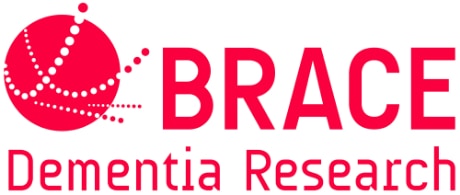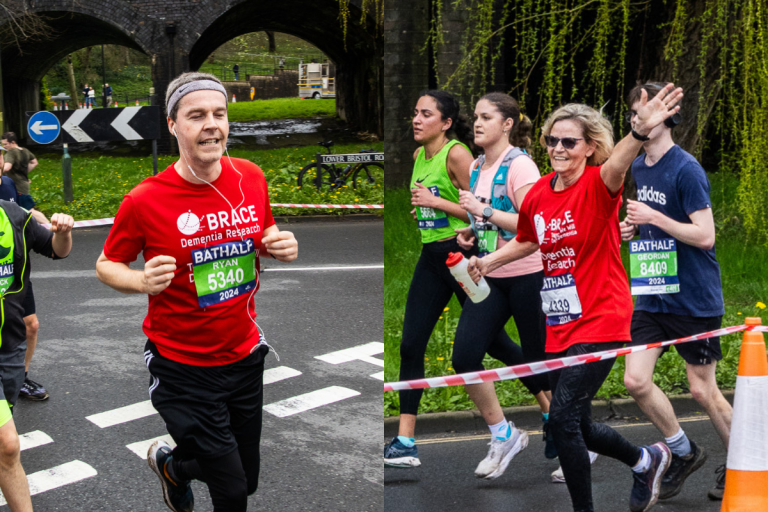Dr Liz Coulthard - University of Bristol
The ReMemBr Group
See glossary at bottom of page for definition of underlined words.
Summary
The ReMemBr Group (Research into Memory, the Brain and dementia) includes neurologists, psychologists and researchers from both the University of Bristol and the North Bristol NHS Trust. They diagnose and treat patients with dementia and also offer clinical research opportunities to people with and without dementia. Their research focuses on early diagnosis of dementia, understanding how memory is stored in the brain and how this can be enhanced, as well as clinical trials for the treatment of dementia.
Examples of current work involving BRACE
Targeting the hippocampus
The hippocampus is a part of the brain involved in memory and spatial navigation. It is one of the first brain regions to show degeneration in Alzheimer’s disease, explaining some of the early symptoms including memory loss and disorientation.
- A project led by Professor Risto Kauppinen and Dr Liz Coulthard is using new technology to obtain high quality MRI scans of the hippocampus. They will compare the effects of normal ageing, mild cognitive impairment, Alzheimer's disease and frontotemporal dementia on the size of the hippocampus. Information from these scans will be combined with cognitive tests probing specific regions of the hippocampus to detect the earliest hippocampal changes in Alzheimer’s disease. This will help to spot the signs of Alzheimer’s disease as soon as possible, providing the best chance of preventing further degeneration.
- There is evidence that exercise may enhance memory and cognition, and also increase the volume of the hippocampus. It may therefore act to reverse some of the effects of ageing. PhD student Netasha Shaikh, supervised by Dr Liz Coulthard and Dr Jack Mellor, aims to test the potential of exercise as a targeted therapy for Alzheimer’s disease, with a view to validating the need for a larger study into exercise and dementia.
Improving the accuracy of diagnosis
Accurate diagnosis is important for those who have dementia, as well as those who do not. It allows the most appropriate treatment options to be established, and can prevent costly trips to memory clinics in situations where it is not necessary.
- A PhD project, supervised by Dr Liz Coulthard and Dr Margaret Newson, will improve the ability to differentiate between those diagnosed with MCI likely to develop dementia and those who perform poorly in cognitive tests for other reasons. Symptom validity tests help tell the difference, and could improve our ability to diagnose dementia accurately.
Could drugs currently used for other diseases help dementia?
Drugs already approved for treating other diseases provide a great opportunity – they are often readily available and cheap, and do not require the lengthy testing procedures of new drugs.
- Previous work in Bristol has shown that manipulating the dopamine system with medications can improve memory consolidation in patients with Parkinson’s disease, meaning memories are stabilised and can be stored more easily. The team are looking to see if the same could be true for those with dementia.
- Work funded by BRACE provided knowledge contributing to the start of the RADAR study, which aims to investigate whether the commonly used blood pressure drug losartan can help slow down damage to brain tissue in Alzheimer’s disease. Previous research indicates that losartan could be helpful in this way but as yet no conclusive results, such as in a clinical trial, have been produced.
- Caffeine is thought to enhance attention and they are also investigating whether or not caffeine might boost attention in people with dementia who have frequent lapses in attention.
Glossary
Neurologists – Professionals who are well-versed in the treatment of conditions involving the central nervous system.
Clinical trials – Trial to evaluate the effectiveness and safety of medications (or medical devices) by monitoring their effects on people.
Spatial navigation – The ability to direct oneself to a desired location. This ability is controlled by the hippocampus of the brain.
Memory clinics – A session in which the person undergoes a memory assessment and is given information on how to effectively live with memory problems.
Dopamine system – The parts of the body responsible for the formation and circulation of the neurotransmitter dopamine.
Memory consolidation – A category of processes that stabilise a memory after its initial acquisition.
Further informationFor more information about The ReMemBr Group, and to see ways you can get involved with their research, please use the following links:
The ReMemBr Group's University of Bristol page
Liz's talk on how sleep may affect dementia at Together4Dementia 2019
Share this page




